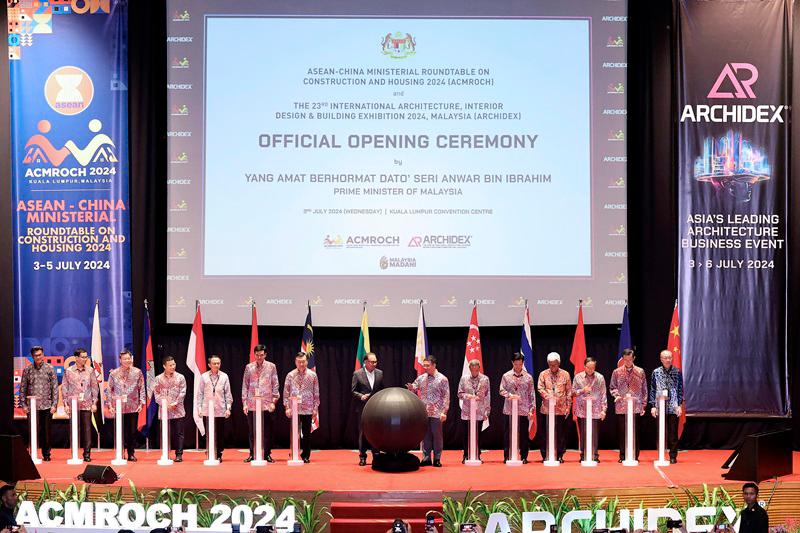GEORGE TOWN: ASEAN member countries have been discussing efforts in resource management and the fisheries industry at the 14th ASEAN Shrimp Alliance (ASA), the 16th ASEAN Fisheries Consultative Forum (AFCF) and the 32nd ASEAN Sectoral Working Group on Fisheries (ASWGFi).
The meetings, which began on July 1 here, concluded today.
The Department of Fisheries (DOF) , in a statement, said that the programme addressed issues related to traditional and small-scale fisheries, the development of the aquaculture industry, and the fight against illegal, unreported and unregulated (IUU) fishing.
“The meeting also discussed measures to tackle the challenges of climate change and introduced new initiatives under ASEAN, such as the ASEAN Carbon Neutrality Strategy. This is related to the development of programmes and projects under collaborative networks.
“Additionally, this meeting focused on discussing the impact of the US Marine Mammal Protection Act (MMPA) on ASEAN countries and the need for ASEAN member states to comply with this act, particularly in terms of technical capacity,” the statement read.
The DOF also noted that the SEAFDEC Secretariat and the ASEAN Secretariat took the opportunity to inform meeting members about regional efforts to enhance the capacity of ASEAN member countries in fisheries management, aquaculture development and other related initiatives.
According to the statement, the meeting provided an opportunity for ASEAN member countries to communicate their needs to further enhance their capabilities to the ASEAN Secretariat and the SEAFDEC Secretariat.
ASWGFi, established under the ASEAN Ministers of Agriculture and Forestry (AMAF) in 1992, serves to discuss current fisheries issues, review the progress of cooperative projects implemented by ASEAN member countries, and strengthen ASEAN cooperation with dialogue partners based on the ASEAN Strategic Plan of Action on Fisheries Cooperation 2021-2025.
ASA provides a platform for both the public and private sectors to discuss issues affecting shrimp production and trade, such as diseases, good aquaculture practices and market access, while AFCF serves as a platform to discuss fisheries resource management and development among ASEAN member countries.
The three meetings involved 70 participants and delegations from agencies and departments responsible for fisheries management and aquaculture in ASEAN member countries, with Malaysia hosting this year.
Besides this, the meetings were attended by international ASEAN dialogue partners such as the Southeast Asia Fisheries Development Centre (SEAFDEC), Japan International Cooperation Agency (JICA), United States Agency for International Development (USAID), United Nations Industrial Development Organisation (UNIDO) and others as dialogue partners, as well as ASEAN Secretariat representatives.









